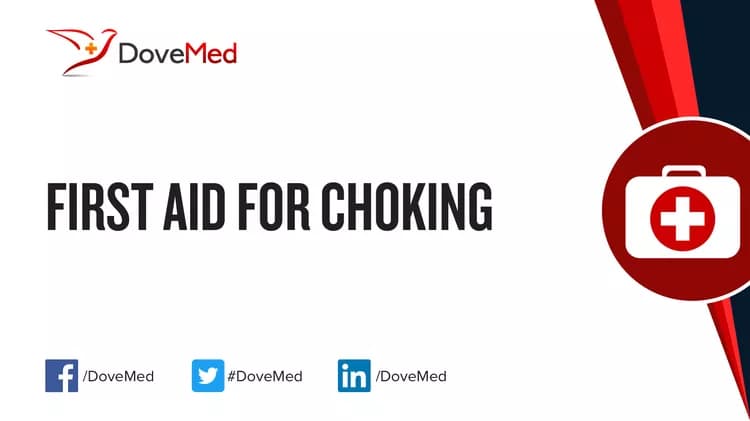
First Aid for Choking
IMPORTANT INFORMATION: Read This First
All incidents of Choking should be evaluated by a trained medical professional, as soon as possible! DO NOT wait! Failure to obtain evaluation as soon as possible may result in serious injury or death. Call 911 (or your local emergency number) immediately, if you experience Choking.
What is Choking?
- Choking is blockage of the airway due to food or other foreign objects getting stuck in the airway, thereby obstructing breathing
- The condition is a life-threatening emergency requiring immediate first aid. It can involve the techniques of Heimlich maneuver and administration of cardiopulmonary resuscitation (CPR), if the individual is not breathing
What are the Causes of Choking?
Choking is caused when food or other small objects get stuck in the airway, causing obstructed breathing.
What are the Signs and Symptoms of Choking?
The signs and symptoms of Choking include:
- Clutching ones throat; grabbing the throat with hand (or both hands). This is a universal sign of choking
- Difficulty breathing and talking
- Gagging
- Trying to cough, but unable to
- Noisy breathing
- Loss of consciousness, fainting
- Face, lips, and skin turning blue
- Becoming panicky
- Infants may have a weak cry, noisy breathing, breathing difficulty, and changes in skin color
How is First Aid administered for Choking?
- Have someone Call 911
- Perform 5 back blows between the shoulder blades, using the heel of your hand
- If you are trained, perform 5 abdominal thrusts (Heimlich maneuver)
- If person is not breathing or moving, begin CPR (cardiopulmonary resuscitation)
Heimlich maneuver:
- Wrap around person’s waist just above the navel, by standing behind the person, and with fist of one hand, grasp the fist with other hand
- Have the person tip forward slightly and press the abdomen hard with an upward thrust, as if trying to lift the person up
- Repeat this 5 times
- Keep performing 5 blows and 5 abdominal thrusts alternatively, till obstruction causing the blockage is released (comes out)
If you are performing abdominal thrusts on yourself:
- Hold fist of one hand with the other, a little above the navel
- Bend over on a hard surface and move fist upward and inward
If you are performing abdominal thrusts on an overweight or pregnant individual:
- Place both hands little higher than normal abdominal thrust location
If the patient is an infant:
- Hold the infant facedown with forearm of one hand and gently, but firmly thump the child in the back, between shoulder blades with heel of the other hand, 5 times
- If the above does not work; hold the infant face up with one hand, have the head slightly lower than the body, and give 5 gentle chest compression by placing 2 fingers on infant’s chest, over the breast bone
- Keep performing back blows and chest thrusts till infant starts breathing
- If the infant does not resume breathing after 3-4 cycles, start performing CPR
Who should administer First Aid for Choking?
A person near the individual, who is choking, must administer First Aid immediately.
What is the Prognosis of Choking?
The prognosis is dependent on how quickly the object is cleared from person’s airway, since an obstruction for long periods will result in a reduced oxygen supply to the brain. With timely help, prognosis is generally good.
How can Choking be Prevented?
- Keep children away from small objects that can be swallowed
- Make sure that food pieces are cut into smaller sizes, especially when being prepared for children
- Learn to perform CPR and abdominal thrusts
What are certain Crucial Steps to be followed?
- Try to clear the person’s airway using the above methods; have someone call 911
- If you are alone with the person who is Choking, shout for help and start First Aid
- If you are unable to clear obstruction, perform effective CPR
Related Articles
Test Your Knowledge
Asked by users
Related Centers
Related Specialties
Related Physicians
Related Procedures
Related Resources
Join DoveHubs
and connect with fellow professionals

0 Comments
Please log in to post a comment.